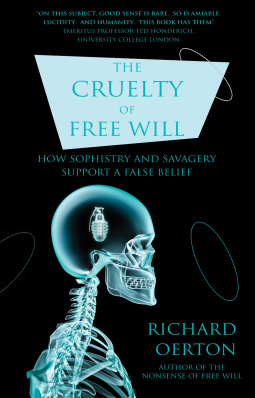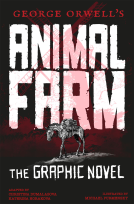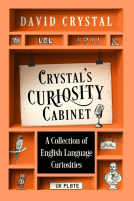Please wait... This may take a moment.
The Cruelty of Free Will
How Sophistry and Savagery Support a False Belief
This title was previously available on NetGalley and is now archived.
Pub Date
8 Nov 2018
| Archive Date
9 Nov 2016
Description
Does the idea that we have free will serve to foster our cruelty to one another? Richard Oerton has already dismissed the idea of free will as incoherent and illusory, doing so in The Nonsense of Free Will, a book described as “wonderfully clear – and very clever” by the New York Times bestselling author Sam Harris.
The Cruelty of Free Will starts by recapitulating the theme of the earlier book, but then goes on to develop it in important ways. It asks two questions: why – and how – does free will belief persist so stubbornly? Philosophers and others who try to uphold free will are guided less by reason than by their own (probably unconscious) emotions. Blind to the fact that our everyday explanations of human behaviour are based, not on free will, but on an unacknowledged determinism, they try to preserve the idea of free will by means of sophistry and word-play. Their methods include a conjuring trick: that of replacing our common idea of free will with some other concept which, though they call it by the same name, actually involves no freedom of choice. Free will is thought to be a good thing and determinism a bad one, but Richard Oerton insists that we’ve got this the wrong way round because belief in free will fosters ignorance and cruelty. It allows us to think that those whose lives are bleak have only themselves to blame, and that criminals and other bad guys are embodiments of self-created wickedness deserving of retributive punishment – whereas in reality, we are all of us simply the products of biological and environmental luck.
The Cruelty of Free Will asserts that human beings belong to what is still a savage species with few inhibitions against harming one another, and that we cling to the idea of free will mainly because it purports to justify the escape and expression of this savagery.
Does the idea that we have free will serve to foster our cruelty to one another? Richard Oerton has already dismissed the idea of free will as incoherent and illusory, doing so in The Nonsense of...
Description
Does the idea that we have free will serve to foster our cruelty to one another? Richard Oerton has already dismissed the idea of free will as incoherent and illusory, doing so in The Nonsense of Free Will, a book described as “wonderfully clear – and very clever” by the New York Times bestselling author Sam Harris.
The Cruelty of Free Will starts by recapitulating the theme of the earlier book, but then goes on to develop it in important ways. It asks two questions: why – and how – does free will belief persist so stubbornly? Philosophers and others who try to uphold free will are guided less by reason than by their own (probably unconscious) emotions. Blind to the fact that our everyday explanations of human behaviour are based, not on free will, but on an unacknowledged determinism, they try to preserve the idea of free will by means of sophistry and word-play. Their methods include a conjuring trick: that of replacing our common idea of free will with some other concept which, though they call it by the same name, actually involves no freedom of choice. Free will is thought to be a good thing and determinism a bad one, but Richard Oerton insists that we’ve got this the wrong way round because belief in free will fosters ignorance and cruelty. It allows us to think that those whose lives are bleak have only themselves to blame, and that criminals and other bad guys are embodiments of self-created wickedness deserving of retributive punishment – whereas in reality, we are all of us simply the products of biological and environmental luck.
The Cruelty of Free Will asserts that human beings belong to what is still a savage species with few inhibitions against harming one another, and that we cling to the idea of free will mainly because it purports to justify the escape and expression of this savagery.
A Note From the Publisher
Having qualified as a solicitor in 1959, Richard Oerton has been a book review editor of the Howard Journal and has worked in private practice, in legal publishing and at the Law Commission. Richard has produced a number of legal and other articles, written and edited legal textbooks and written three non-legal books, including The Nonsense of Free Will (Matador, 2012).
Having qualified as a solicitor in 1959, Richard Oerton has been a book review editor of the Howard Journal and has worked in private practice, in legal publishing and at the Law Commission. Richard...
A Note From the Publisher
Having qualified as a solicitor in 1959, Richard Oerton has been a book review editor of the Howard Journal and has worked in private practice, in legal publishing and at the Law Commission. Richard has produced a number of legal and other articles, written and edited legal textbooks and written three non-legal books, including The Nonsense of Free Will (Matador, 2012).
Available Editions
| EDITION |
Ebook |
| ISBN |
9781785897702 |
| PRICE |
£4.99 (GBP)
|
| PAGES |
200
|
Additional Information
Available Editions
| EDITION |
Ebook |
| ISBN |
9781785897702 |
| PRICE |
£4.99 (GBP)
|
| PAGES |
200
|
Average rating from 6 members
Readers who liked this book also liked:
George Orwell's Animal Farm
Jakub Politzer (Illustrator), Christina Dumalasova (adapter), Katerina Horakova (adapter)
Comics & Graphic Novels, General Fiction (Adult)






